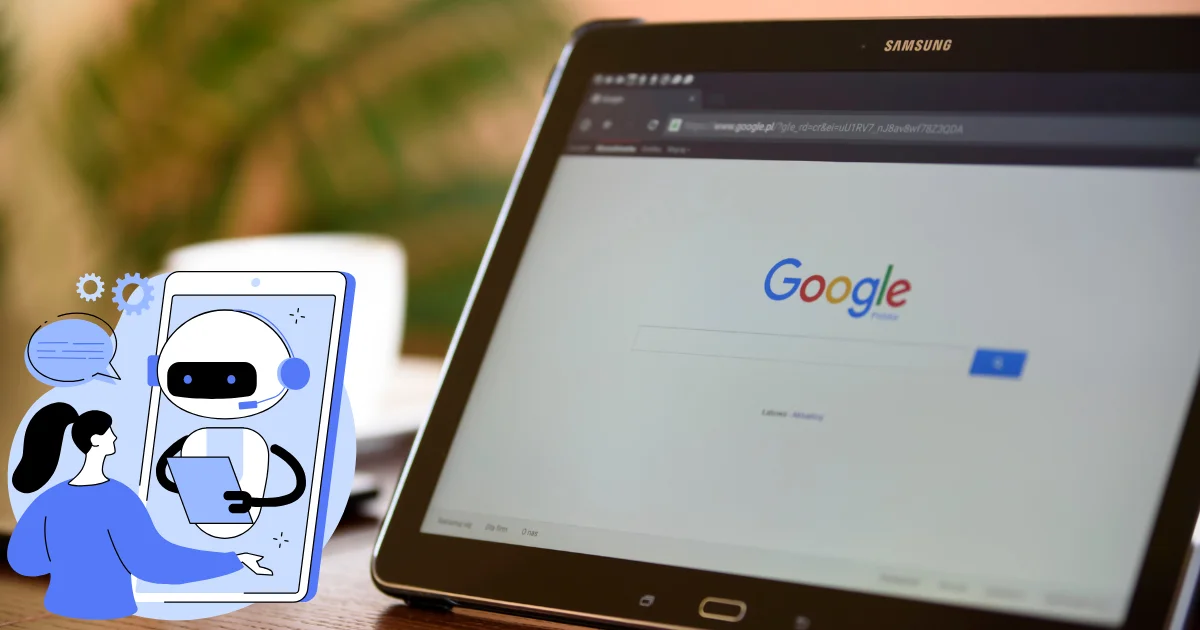Readers and publishers have both observed a worrying trend in the last few months: Google’s search results increasingly regularly put AI-generated “spam” articles—thin, plagiarized content—above actual, properly reported news. You may see this trend most clearly in the News page and in Google’s AI Overviews. This article will talk about the causes, effects, and possible solutions to this rising problem.
1. What went wrong?
In the middle of 2024, Wired said that AI-generated spam—articles that were stolen from real news reports, slightly changed, and given AI-made images—began to show up above the original reporting in Google Search results. One shocking case was when WIRED content, including quotes, was copied word for word into several languages and put on low-quality domains. This content eventually outranked the original on Google News.
2. How does AI spam beat good reporting?
How AI Overviews Work: Google’s AI Overviews put together information from several places, although sometimes the sources are copied articles instead of the original publishers.
Spamdexing and Content Farms: These pages that have been scraped or spun are optimized to rank (this is called “spamdexing”).
reddit.com +8 en.wikipedia.org +8 en.wikipedia.org +8 .
Google’s Algorithmic Gaps: Even with improvements like Panda and SpamBrain that try to stop spam, there are still vulnerabilities in the system, especially when it comes to AI ranking, that let copied content get through.
3. Why is this happening right now?
AI Search Shift: Google’s shift toward AI-centric search (such AI Overviews and AI Mode) puts more emphasis on snippets than on links for finding things.
en.wikipedia.org +12 en.wikipedia.org +12
nypost.com +12.
Zero-Click Phenomenon: More than half of Google searches in the U.S. Spam controls that don’t work: Google says it will lower the rank of AI-generated content that isn’t original, while plagiarized stuff stays at the top.
xponent21.com
en.wikipedia.org
+2 inc.com
+2laboratoriodeperiodismo.org+2.
4. Who is affected?
News Publishers: Business Insider, The Atlantic, HuffPost, and The Washington Post are among of the biggest news sites that have seen traffic decline by 50–55% because to AI search upgrades.
5. Expert & Legal Responses
This is what Google says: The company says it’s fighting spam and wants to get more people to create original GHQ (Expertise, Authoritativeness, and Trustworthiness) material.
Regulatory Pressure: In the UK and EU, watchdogs are looking into Google’s dominance and possible anti-competitive measures that benefit its AI features.
Pushback from publishers: In Germany, media associations have filed objections, and in the U.S., they have raised worries.
reuters.com
nypost.com +4.
6. What Can Publishers Do?
Be friendly to AI Overview: To have a better chance of getting featured developers, use structured formats such short descriptions, FAQs, and tables. +11 for google.com and +11 for xponent21.com
inma.org +11.
Show that your work is original by citing sources, adding fresh thoughts, quotes, and clear bylines.
Add structured data: Schema markup helps search engines check if content is original.
Get more traffic from different places, such social media, newsletters, applications, and referrals that don’t come from search engines.
en.wikipedia.org
inma.org +3
thetimes.co.uk +3
upgrow.io +3.
7. Bigger Effects on Journalism: If Google stops giving smaller investigative outlets as much attention, they may not do as well.
On Web Experience: Users can get less accurate content that is hidden under polished AI summaries.
On the evolution of SEO: E-E-A-T and integrity now matter more than simple optimization tactics.
nypost.com developers.google.com.
Conclusion
Google’s AI-based ranking system has unlocked a Pandora’s box. AI Overviews give rapid answers, but they also put stolen content ahead of original, investigative reporting. Publishers need to change by making their material more valuable, making it work better with AI forms, and looking for different ways to make money. Regulators are also looking closely at the imbalance. It’s not only clicks that are at danger; the future of trustworthy media is too.
Frequently Asked Questions about
Does Google punish every content that was made by AI?
No. Google’s rules say that content that is spammy or manipulated is not allowed. Quality AI content with human monitoring and originality can score well.
developers.google.com
Why do sites that copy other sites rank higher than the originals?
They take old content and make it new with simple AI changes, and they make it better for AI Overviews by taking use of system flaws.
What has changed about the traffic to publishers?
A lot of sites say that since AI search options were added, their Google News traffic has dropped by 50% to 55%.

Business Consultant | Web designer & Developer | Social media Manager | SEO | Passionate Learner, I am deeply passionate about learning and continuously improving my skills.
My interests are diverse, ranging from music and singing to computers and programming languages, digital art, AI



